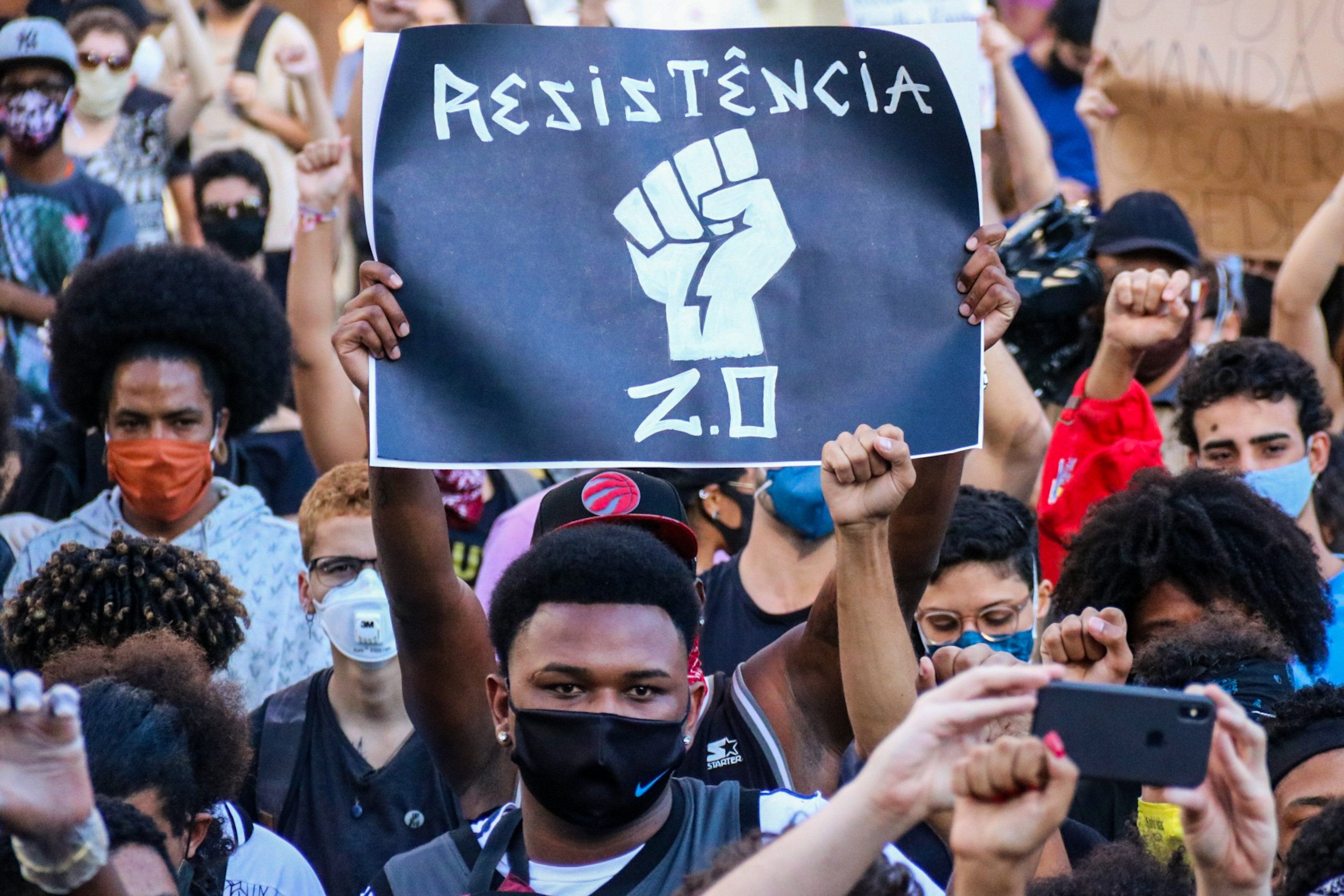June 08, 2020
Nationwide protests in the US over the police killing of George Floyd have inspired solidarity demonstrations around the world. But in some countries, people are also on the streets to protest discriminatory policing and broader racial injustice in their own countries. Here's a look at a few protests in just the past few days, including in a couple of countries where racial tensions don't always make the global news.
Brazil: Protesters in Rio de Janeiro were out in force this weekend to call attention to a long history of police violence and discrimination. Rio, where powerful gangs control large swathes of the city's impoverished favelas, has long been an exceptionally violent place, and the police there are known to treat local residents with a heavy hand. In 2019, cops gunned down a record 1,800 people in Rio (police in the entire United States kill roughly 1,000 people per year.) The overwhelming majority of those killed by the Rio police are black. Of the roughly 9,000 people killed by Rio police over the past decade, three quarters of them were black men, according to Human Rights Watch. Just last month, an unarmed black teenager was shot during a police raid. Hanging over all of this is the still unresolved murder of city councilwoman Marielle Franco, an outspoken police critic, who was assassinated in 2018.
Japan:Non-Japanese minorities make up less than five percent of the population in Japan, where the country's relative ethnic homogeneity has been a source of both pride, controversy, and debate in recent years. This Saturday, several hundred people were out on the streets of Tokyo to express solidarity with the Floyd protests, but also to highlight police discrimination in their own city, spurred on by the case of a 33-year old ethnic Kurd from Turkey who was thrown to the ground and manhandled by police after he refused to let them search his car. A bystander caught the incident on video. Recent police reforms in Japan have sought to address a long history of abusive interrogation practices, but a focus on race and policing is relatively new in the country.
Israel: Solidarity protestors in Israel took aim at racial discrimination in their own society this weekend. A main focus of the demonstrations was systemic discrimination against Israel's black population. Protestors chanted the name of Solomon Tekah, an unarmed Ethiopian Jewish teenager killed last year by an off duty police officer. Tekah's death sparked several days of protests last summer and threw a harsh light on the discrimination suffered by the country's sizable Ethiopian minority, which first arrived in large numbers via a massive airlifts out of Ethiopia in the mid 1980's.
Portugal: Thousands of protesters in Lisbon and other large cities demanded justice in the case of Claudia Simões, a 42-year old black woman originally from the former Portuguese colony of Angola, who said she was severely beaten by police earlier this year after a bus operator accused her of having assaulted him. Racial tensions surrounding the police are not new in Portugal. Last January, protests erupted after a viral video showed police abusing residents of the predominantly black Bairro da Jamaica suburb of Lisbon. Several months later, eight officers were convicted of kidnapping and beating six black youths near the capital city in 2015.
More For You
- YouTube
On Ian Explains, Ian Bremmer takes a look at the growing surge in global conflict and the ripple effects of so much violence, war, and armed struggle throughout the world.
Most Popular
Think you know what's going on around the world? Here's your chance to prove it.
French President Emmanuel Macron, German Chancellor Friedrich Merz, Ukrainian President Volodymyr Zelenskiy, U.S. Special Envoy Steve Witkoff and businessman Jared Kushner, along with NATO Secretary-General Mark Rutte and otherEuropean leaders, pose for a group photo at the Chancellery in Berlin, Germany, December 15, 2025.
Kay Nietfeld/Pool via REUTERS
The European Union just pulled off something that, a year ago, seemed politically impossible: it froze $247 billion in Russian central bank assets indefinitely, stripping the Kremlin of one of its most reliable pressure points.
Big global stories. Real conversations with world leaders. Our award-winning global affairs show, GZERO World with Ian Bremmer, goes beyond the headlines on the stories that matter most. Here’s a look back at the 10 most quotable moments from this year’s episodes.
© 2025 GZERO Media. All Rights Reserved | A Eurasia Group media company.
